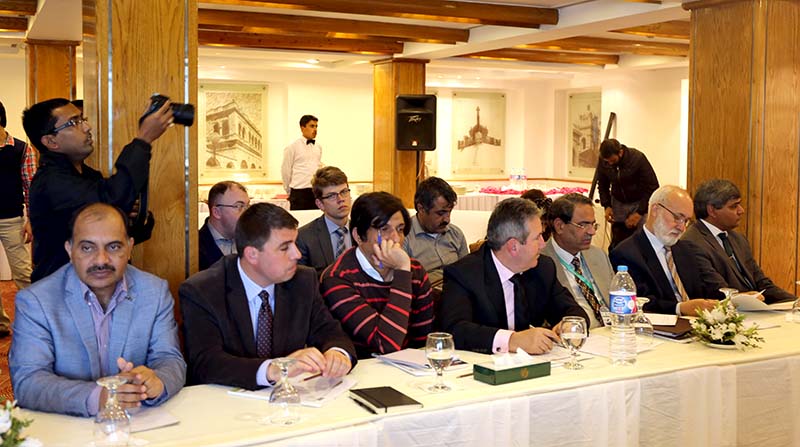Pakistan-Afghanistan media should orient debates beyond blame game: PIPS roundtable
On 14 March 2017, PIPS, with the support of Friedrich Ebert Stiftung (FES), hosted a roundtable dialogue, “Pakistan-Afghanistan relations: transforming through media”.
The dialogue hosted ten visiting Afghan journalists, who were selected in an exchange program, and was attended by senior experts, journalists, and former officials from Pakistan.
Participants at the roundtable agreed that for all the attempts to overcome past bitterness between Pakistan and Afghanistan, their bilateral relations continue to deteriorate. They asked media to orient debate towards those that promote goodwill between the two.
Discussants narrated that both Pakistani and Afghan media portray each other negatively. Some alluded as if media have merely been following the state narrative.
It was, however, reminded by some that media merely carries the perception of people. Afghans, head of the delegation said, view Pakistan so negatively, that when the delegation was coming to Pakistan, they were asked by people not to go.

One Afghan journalist complained when it comes to Pakistani media, its print outlets use the term “killed” for Afghan soldiers while “martyr” for Pakistanis soldiers. This, he said, is against basic journalistic principles. Another complained that Pakistani talk shows often discuss relations with Afghanistan, without any representation from Afghanistan. These, he said, are “one-sided.”
They were however reminded there could be more to it. Marvi Sirmed reminded that is a huge constituency, including in the media, which dissents with the state’s narrative. Pakistani media has been pinpointing the wrongs inside its own country.
Several Pakistani participants argued Pakistan’s views its relations with Afghanistan through the lens of India. Khalid Aziz, former secretary, argued the deepening of ties between Afghanistan and India, is looked at suspiciously. It was even reminded there is even talk of proxy war between Pakistan and India, in Afghanistan.
Renowned journalists Hamid Mir recommended Pakistani media should not analyze relations with Afghanistan, through the prism of India.
Senior journalist Ziauddin even called for moving beyond the geo-political worldview, which focuses on alliances and rivalries. He called for orienting the debate to geo-economics, which benefit the two people.
He suggested that media be used for the betterment of relations between the two countries.
One of the ways media can help improve the relations is through better understanding of why the two states took different decisions in their course of history.

Senior journalist Rahimullah Yusufzai recommended a debate on what would have happened, had the Soviets succeeded in Afghanistan, justifying that it was then, in 1980s, when Pakistan developed the “habit” of allowed people to live above the law.
Afghan journalist called upon media to explore why the relations between the two countries continue to decline, despite several such attempts to remove misperception; only few years ago, President Ashraf Ghani refused invitation from India to visit Pakistan, yet, the relations have not improved.
Participants underscored that media should promote several commonalities too.
Hamid Mir suggested media should tell it is not just Taliban crossing the border; there are varied Sufi connections between the two countries. “We forget that Lal Shahbaz Qalandar whose shrine was recently attacked, had also come from Afghanistan”, he said. He recalled that when he was reporting from Ghazni, many of his colleagues wanted to offer prayers on Osman Hajvery’s shrine, whose son is the famed Data Gunj Bakhsh. He called upon media to help promote “religious tourism.”
Participants shared some other initiatives too: Media should ask states to sit on the table they have already committed to like Quadrilateral Coordination Group and Heart of Asia conferences; media in two countries should arrange for hosting joint shows; media should ask their governments to relax visas to journalists interested in reporting about each other; joint training of Pakistan and Afghan journalists should be arranged.
Participants appreciated the visit of Afghan journalists to Pakistan, calling for such visits of Pakistani journalists to Afghanistan. These exchanges should include meetings with the common people, Rahimullah Yusufzai added.
Earlier, PIPS director Muhammad Amir Rana welcomed the participants, while FES Country Director Rolf Faasch shared rationale of the dialogue.


